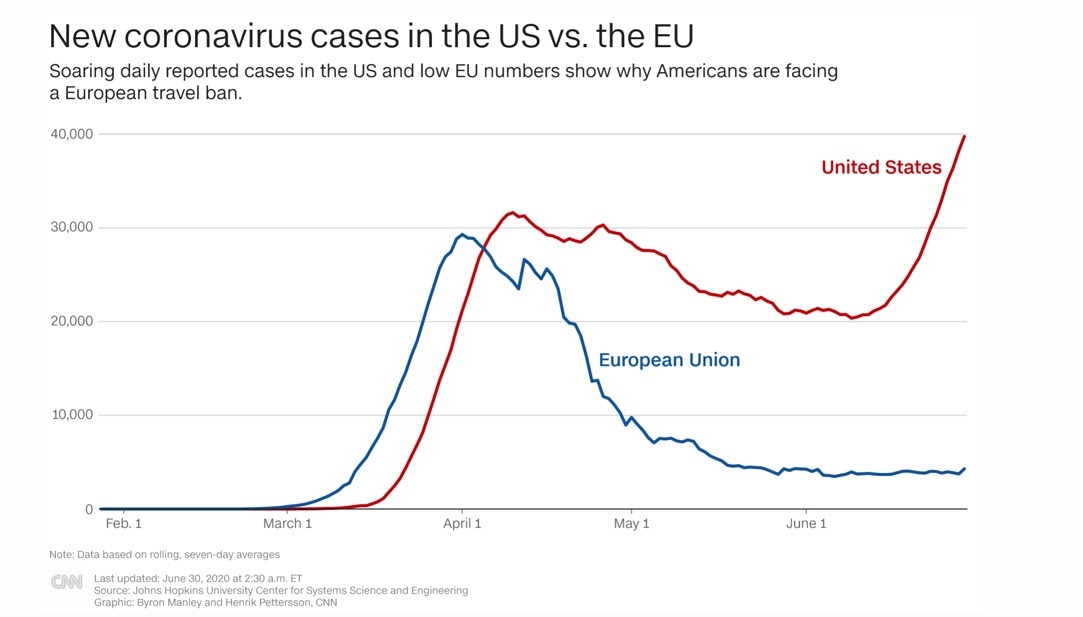Dear Reader, (Including those of you who had a crush on Jennifer instead of Bailey from the WKRP crew, you traitors),
“That’s some bad hat, Harry.”
That’s a line from Chief Brody in Jaws. An old dude—named Harry—annoys Chief Brody (Roy Scheider) by making fun of the chief’s mild aquaphobia while he is trying to spot a shark that will likely eat another kid.
Brody responds, “That’s some bad hat, Harry.”
Now, I’ve seen Jaws many, many times. And it’s not like I had actually forgotten the scene. But it wasn’t until I saw it at drive-in last weekend that I connected the dots to Bad Hat Harry Productions, the production company founded by Bryan Singer, responsible for many of the X-Men movies, The Usual Suspects and the TV show House. They weren’t hard dots to connect. The company’s original logo was literally a drawing of the Jaws scene.
So those are easy dots to connect, and I failed. If I were a member of a pop culture-obsessed offshoot of the Yakuza, I might have to remove the tip of my pinky as penance. Fortunately, that’s not the case.
But I’ve got other dots to connect (warning: Dot connection addiction is dangerous—you have to know where to draw the line). As I mentioned on the podcast the other day, watching Jaws during a pandemic was interesting. Obviously, the movie is not an intentional allegory about a virus that wouldn’t hit until nearly five decades later. But it’s hard not to see some of it that way. In particular, nearly every scene with the mayor feels awfully familiar. Watch this:
Dreyfuss is basically an epidemiologist explaining that the shark doesn’t care about the crucial summer months for Amity’s economy. And there’s the mayor playing, well, not quite Donald Trump, but certainly one of dozens of Republican politicians looking for excuses not to listen to the scientists. Dreyfuss says he found the tooth of the shark in the hull of a boat. And despite being informed that the owner of the boat, one Ben Gardner, was—to use a scientific term—eatenby the shark, the mayor won’t believe any of it because Dreyfuss can’t produce the tooth. I mean, maybe Brody could have brought Ben Gardner’s head?
Anyway, what really gets the mayor’s goat (presumably so long as the goat doesn’t go swimming) is the “fake news” contained in a vandalized billboard.
Remember, a bunch of people have already been eaten by the shark. But closing the beaches—not the bars, not the restaurants, just the beaches—is too terrible a thing to contemplate, so the mayor and most of Amity’s residents simply pretend there’s no shark. It feels amazingly familiar.
The one scene where the mayor isn’t analogous to our moment is when the moral enormity of his reluctance finally hits him and Mayor Vaughn comes to his senses.
We haven’t had that scene—not really. Some of the politicians and pundits who ridiculed those who took the pandemic seriously in March have changed their tunes. But none of them, as far as I know, have admitted to any serious failure, moral or intellectual. Most of the people who said “it’s just the flu”or something similar have either stuck to their guns or just gone silent. And, until about a month ago, this asininity was disproportionately a partisan affair. But you can’t have asininity without an ass—and an ass, just like the old French General Assembly, is divided on a left-right spectrum (let’s forgo the easy quips about what this says about the center).
Prior to the George Floyd protests, Jaws worked mostly as a parable for a big chunk of the Republican party, starting with Donald Trump. Shark repellent is for cucks and cowards! This is just a typical shark season, you stupid galeophobes! You just want to use this shark to defeat Mayor Vaughn in the next election!
But then the tables turned. The Richard Dreyfusses, righteously dismissive of the bourgeois and commercial concerns of the gentry, suddenly insisted it was fine to get in the water. Hell, while you’re at it, defund the lifeguards and tear down the lifeguard towers!
Not only did they say it was fine to get in the water, they said it was fine to stay in the water indefinitely. Was there a single prominent public health expert who initially supported the protests but, after say, the second week, said, “Okay you made your point”?
If there was, I missed it.
Covid, Chapter 2.
I never thought Donald Trump deserved much blame for the initial outbreak of the coronavirus in the U.S., or even for our faltering early responses. America rarely gets anything right on the first try. As Winston Churchill reportedly said, “You can always count on Americans to do the right thing—after they’ve tried everything else.”
President Trump often says that he saved millions of lives by closing down travel from China. He didn’t really close down travel as much as he claims, but what he did was better than nothing—and given that he was condemned for it by Biden and many other Democrats he has every right to brag about it. But the move surely didn’t “save millions of lives.” The EU didn’t ban air travel from China (or anywhere at all) until mid-March. They’re doing much better than the U.S. Oh, and Italy closed down travel from China before the U.S. did, how much good did it do them?
The only point to closing borders during a pandemic is to buy yourself some time. We wasted whatever time Trump bought us. When he says he saved millions of lives, it is only to make it sound that we’re lucky to have lost “only” 131,544 Americans (as of this writing). That’s a quarter of the global reported COVID-19 deaths. America, the richest country in world, with 4.25 percent of the world population, is punching way above its weight
This chart alone tells the tale:

The romantic pandemic.
In Suicide of the West I argued that perhaps our biggest problem is romanticism. Romanticism is a complicated term because, for even the fairly educated layman, it conjures everything from painting and poetry to Lifetime Movies of the Week. Even Isaiah Berlin, who literally wrote the book on Romanticism, considered offering a clear definition of the term to be a “trap.”
For our purposes, Romanticism as a philosophical movement was all about the primacy of emotions and feelings, a rebellion against reason and rationalism. Romanticism, Joseph Schumpeter observed, “arose almost immediately as a part of the general reaction against the rationalism of the eighteenth century that set in after the revolutionary and Napoleonic Wars.” Hegel described it as “absolute inwardness.” When Blake wrote, “A Robin Red breast in a Cage / Puts all Heaven in a Rage,” the cage he had in mind were the coldly scientific rules and codes of the Enlightenment. The hero of Franz Sternbald’s romantic novel Wanderings declared: “Not these trees, not these mountains do I wish to copy, but my soul, my mood, which governs me just at this moment.”
Donald Trump is an amazing example of one form of the romantic spirit. He often says his instincts are more important than expertise and experience. He even recently told Sean Hannity that he always believed talent is more important than experience. He famously explained in a deposition that the best metric for measuring his net worth was how he feels about himself any given morning. (I’m not even going to get into the Romantic roots of modern nationalism, including Trump’s version of it). His response to the pandemic has been a textbook case of romanticism trumping (no pun intended) reason. The virus will just “disappear” because he feels that it will. He scorns masks because he feels that wearing one is a sign of weakness.
But our problems are so much greater than Donald Trump. One of Jonathan Haidt’s “Great Untruths” is “Always Trust Your Feelings.”
A word about feelings.
Let me interrupt my extemporaneous diatribe for a moment.
I’m okay with telling people “Always listen to your feelings” because I think your feelings and instincts tell you important things. A lesson I learned too late in life is that fear alone is never a good reason not to do anything. You need to ask yourself why you fear something. Sometimes your fear is well-placed, other times it’s not. You need to use your intellect to figure out the difference.
Which is to say, there’s a difference between trusting and listening, because when you listen you still have the option to say “No.” Think of all the things you’ve learned to do or succeeded in doing because you didn’t listen to your feelings. Would you have learned to swim? To dive into water? Ride a horse? Pet a dog? Gotten or stayed married? And then there’s the problem of bad feelings. Suffice it to say, that if everybody did whatever their feelings told them to do in a particular moment, groin punching would be our national sport (“Tonight on ESPN, The Ocho!”).
Woe, woe, feelings.
Okay so where was I? Oh right, Haidt’s “Great Untruth.” I think so many of our problems these days stem from the fact that Americans, regardless of ideology, trust their feelings too much. If you find yourself throwing punches or having what looks like a nervous breakdown, because a private business asked you to wear a mask during a pandemic, you’re listening to your feelings too much. If you think it’s outrageous to open churches in a pandemic but awesome to occupy City Hall—because that will end racism or something—you should stop trusting your feelings.
More broadly, so many of the policy disputes we have these days seem to have less to do with things like math or experience and more to do with feelings. It just feels like disparities in male-female pay across a wide variety of occupations can be explained solely by sexism. It just feels like we should be able to afford a Green New Deal. It just feels like abolishing the police should work.
I think intellectual honesty requires admitting that people have been saying “Go with your gut” for a very long time. Even Obi Wan Kenobi said “trust your feelings” a long time ago, in a galaxy far, far away (personally given how far away the nearest galaxy is, I always thought the second “far” was gratuitous). And, I suspect that feelings always played a bigger role in policymaking than we might like to think. I mean, FDR set the price of gold based on what numbers he thought were lucky.
The difference now is that we’re not just telling people to trust their own feelings. We’re creating a worldview that other peoples’ feelings are sovereign. The intentions of the offender do not matter, only the feelings of the offended. Even when the offenses happened doesn’t matter. Five minutes ago or five years, it’s all the same. An official at Boeing was just forced out of his job for being “wrong” about something 33 years ago.
Instead of clear rules, rationally conceived and universally applied, the new rules are opaque, emotionally conceived and subjectively applied. If we lived under some fickle absolutist king, who arbitrarily decided what was offensive, outrageous, or even criminal, we’d all recognize the illiberalism of it. But when a mob arbitrarily rules the same way, we call it social justice. It’s really just the tyranny of feelings.
Various & Sundry
Goldberg update, four-legged and two: I finished writing this from the front passenger seat of the family funwagon barreling toward NYC. We’re spending the Fourth with Grandma and Fafoon (I’d watch that cop show). The quadrupeds are in good hands with Kirsten and she will be sending proof of life both this weekend and next week when we go to Alaska. Pippa continues to roll sporadically in stygian foulness. Zoë continues to make outsized threats to critters. Ralph is warming to me, Gracie remains demanding. And I gotta go.
ICYMI







Please note that we at The Dispatch hold ourselves, our work, and our commenters to a higher standard than other places on the internet. We welcome comments that foster genuine debate or discussion—including comments critical of us or our work—but responses that include ad hominem attacks on fellow Dispatch members or are intended to stoke fear and anger may be moderated.
With your membership, you only have the ability to comment on The Morning Dispatch articles. Consider upgrading to join the conversation everywhere.